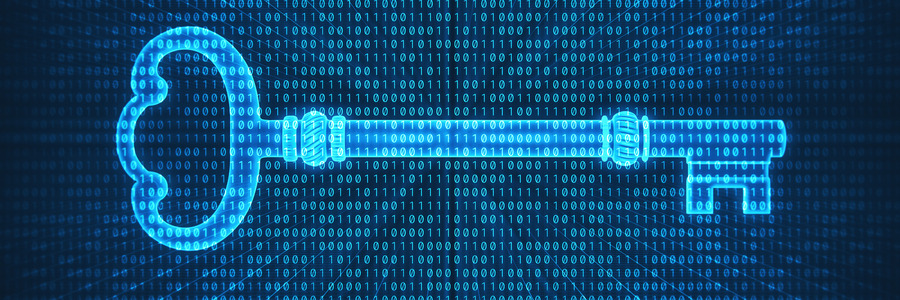Cryptocurrency has brought a revolution in the world of finance by offering a decentralized, secure, and transparent way of transactions. A crypto wallet plays a significant role in storing and transferring cryptocurrencies. However, there is more to it than just storing cryptocurrencies. A crypto wallet also has an associated private key that ensures the security and confidentiality of transactions. In this article, we will explore the role of private keys in crypto wallets, their significance, and their working mechanism.
What is a Private Key?
A private key is a long and randomly generated string of alphanumeric characters that serves as a password to access your cryptocurrency assets in a crypto wallet. It is a secret code that authenticates your identity and enables you to sign transactions. Private keys are unique to each wallet and are mathematically linked to the public address, which is the identifier of the wallet.
How do Private Keys Work?
Private keys work based on asymmetric encryption algorithms that use two keys- public and private keys. The private key is kept secret and is known only to the wallet owner, while the public key is shared with the network. When you initiate a transaction, you use your private key to sign it, and the network uses your public key to verify it. If the signatures match, the transaction is considered valid and added to the blockchain.
Importance of Private Keys in Crypto Wallets
The private key is the backbone of a crypto wallet’s security. It ensures that only the owner can access and transfer the cryptocurrency assets. If someone else gets hold of your private key, they can steal your funds, and the transaction cannot be reversed. Therefore, it is crucial to keep your private key secure and protected.
Types of Crypto Wallets
There are several types of crypto wallets, each with a different mechanism of storing and accessing private keys. The most common types are:
- Software Wallets: These are desktop or mobile applications that store your private keys on the device’s hard drive. Examples include Exodus, Jaxx, and MyEtherWallet.
- Hardware Wallets: These are physical devices that store your private keys offline and protect them from online threats. Examples include Ledger, Trezor, and KeepKey.
- Paper Wallets: These are printouts of your private and public keys that you can store physically. However, they are vulnerable to physical damage and theft.
Storing Private Keys
Storing private keys securely is crucial to protect your funds. There are several ways to store private keys, each with its advantages and disadvantages:
- Hot Storage: This refers to storing private keys online, such as on a desktop or mobile wallet. Although it offers convenience and accessibility, it is vulnerable to hacking and malware attacks.
- Cold Storage: This refers to storing private keys offline, such as on a hardware or paper wallet. It offers high security but is less convenient and accessible.
Best Practices for Protecting Private Keys

To protect your private keys, you should follow these best practices:
- Use a hardware wallet for storing large amounts of cryptocurrencies.
- Enable two-factor authentication and strong passwords for your crypto wallets.
- Keep your private keys offline and in a secure location.
- Regularly back up your private keys and seed phrases.
- Avoid sharing your private keys with anyone.
What Happens if You Lose Your Private Key?
Losing your private key can be disastrous as it means losing access to your cryptocurrency assets forever. If you lose your private key, you will not be able to sign any transactions or access your funds. This is because no one else can access your funds without the private key. Therefore, it is crucial to keep your private key safe and backed up.
Recovering Lost Private Keys
Unfortunately, recovering lost private keys is nearly impossible. However, some wallet providers offer recovery services that can help you regain access to your funds. For instance, some hardware wallet manufacturers offer seed phrase recovery, which can restore your private key if you have lost it. However, it is crucial to note that these recovery services are not foolproof and can compromise the security of your private keys.
The Risks of Sharing Private Keys
Sharing your private key with anyone is a significant risk as it can lead to the loss of your funds. Therefore, you should never share your private key with anyone, including family members, friends, or even wallet providers. Wallet providers never ask for your private key, and if they do, it is a red flag, and you should avoid using their services.
Key Management Services
Key management services are third-party services that offer management and protection of private keys. These services can help in securing your private keys, especially for institutional investors who deal with large amounts of cryptocurrencies. Key management services offer a secure and efficient way of managing private keys, but they come at a cost.
The Importance of Backing Up Private Keys
Backing up your private keys is crucial to ensure that you never lose access to your cryptocurrency assets. It is recommended to create multiple backups of your private keys, and store them in different secure locations. This can be done by creating a paper wallet, saving the private key to a USB drive, or using a hardware wallet that allows you to recover your funds with a seed phrase.
Multi-Signature Wallets
Multi-signature wallets, also known as multisig wallets, are a type of crypto wallet that require multiple signatures to approve a transaction. For instance, if you have a 2-of-3 multisig wallet, it means that two out of the three designated individuals must approve a transaction before it can be executed. This adds an extra layer of security to the wallet, as it makes it harder for an attacker to steal funds.
Biometric Authentication
Biometric authentication is a method of verifying your identity based on your physical traits, such as your fingerprint, face, or voice. This method of authentication is becoming increasingly popular in the crypto industry, as it is more secure than traditional password-based authentication. Some hardware wallets already offer biometric authentication, and it is expected to become more widespread in the future.
Decentralized Key Management Services
Decentralized key management services are a type of key management service that operates on a decentralized network, such as a blockchain. These services offer enhanced security and privacy, as they do not rely on a single entity to manage the private keys. Instead, they use a distributed network of nodes to manage the keys, making it harder for an attacker to compromise the system.
Cold Storage Alternatives
Hardware wallets are not the only option for cold storage of private keys. There are other alternatives, such as a dedicated computer or offline storage on an air-gapped computer. A dedicated computer is a device that is not used for anything else other than managing your crypto assets. An air-gapped computer is a computer that is not connected to the internet or any other network, making it virtually impossible for an attacker to gain access to your private key.
Public Key Cryptography
Public key cryptography is the cryptographic algorithm that is used to generate public and private keys. It is also known as asymmetric cryptography, as it uses two different keys to encrypt and decrypt data. Public key cryptography is widely used in the crypto industry, as it offers enhanced security and privacy.
Key Derivation
Key derivation is the process of generating a private key from a seed phrase or password. The seed phrase or password is typically 12 to 24 words long and is used to derive the private key. This allows you to recover your private key in case you lose access to your wallet or device. It is important to choose a strong seed phrase or password and keep it secure.
Physical Attacks
Physical attacks are a significant threat to the security of private key. Attackers can use various methods, such as hacking, theft, or coercion, to gain access to your private key. Therefore, it is crucial to store your private key in a secure location and follow the best practices for protecting them.
Quantum Computing
Quantum computing is a new technology that has the potential to break traditional cryptographic algorithms, including public key cryptography. While it is still in its early stages, quantum computing poses a significant threat to the security of private key. Therefore, the industry is already exploring new cryptographic algorithms that are resistant to quantum attacks.
Conclusion
In conclusion, private keys are a critical aspect of crypto wallets, and their security is paramount to ensuring the safety of your funds. It is important to understand how private key work and follow the best practices for storing and protecting them. As the industry evolves, new challenges and opportunities will emerge, and it is crucial to stay informed and adapt to the changing landscape.
FAQs
- What happens if I lose my private key?
- Losing your private key means losing access to your cryptocurrency assets forever. It is crucial to keep your private key safe and backed up.
- Can I recover my lost private key?
- Recovering lost private key is nearly impossible. However, some wallet providers offer recovery services that can help you regain access to your funds.
- Is it safe to share my private key with anyone?
- No, sharing your private key with anyone is a significant risk as it can lead to the loss of your funds. Therefore, you should never share your private key with anyone.
- What are the best practices for protecting private keys?
- The best practices for protecting private key include using a hardware wallet, enabling two-factor authentication, keeping private key offline and in a secure location, regularly backing up private key and seed phrases, and avoiding sharing private key with anyone.
- What is the future of private key management?
- As the adoption of cryptocurrencies grows, the management of private key will become more critical. The industry is already seeing the development of innovative solutions such as multi-signature wallets, biometric authentication, and decentralized key management services.




